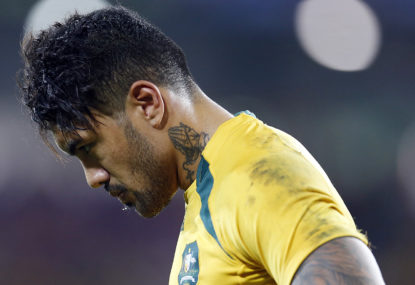Rugby union is still seen as being in an early stage of professionalism. It has only been 18 years since the first fully professional rugby union contracts were signed.
Since then, the rugby landscape has changed significantly. Where in the amateur era foreigners moved to adopted countries mostly due to job opportunities and naturalised themselves to their new countries, the ‘poaching’ phenomenon has become standard practice for many clubs – and to a lesser extent countries – in the professional era.
You could argue that most countries to an extent are guilty of this, however you may want to differentiate between intended poaching and opportunistic poaching.
Intended poaching is the setup of active programs by clubs and national unions, whereby the national union of the clubs assist and set out stipulations in regards to how many players may be encouraged to join forces with these clubs.
Financial assistance can also be part of the assistance from the national unions, directly or indirectly.
This entails the active search and identification of young talent that can be poached in the prime of their young careers after representing the top under age competitions in their countries of birth.
It is however not limited to youngsters, it could be established players after only a few years in the professional arena, to senior players close to the end of their stellar careers.
Opportunistic poaching is the lesser of two evils as the clubs are approached by the agents of the respective players who seek higher salaries and often goes hand in hand with players realising their chances of representing their countries of birth are thwarted with obstacles.
Many youngsters leaving school may decide to leave the country of their birth from the outset and move abroad in the hope of securing contracts in other markets. In most cases these players are not established and therefore have to grind out an existence before making a name for themselves.
It is hard to blame a player who decides he wants to go abroad for more money, new experiences and a better lifestyle.
It is however harder to swallow the active intended poaching that reduces talent pools, and weakens domestic rugby for those countries who are net exporters of rugby players.
It is hard to argue that the Pacific Islands, New Zealand and South Africa are by far the biggest exporters of natural rugby talent, and considering the size of their pools, it is likely that eventually it will impact their domestic competitions and ultimately their national teams.
New Zealand and South Africa have the largest pools of talent. with a population of just over 4 million, New Zealand does well to have the depth they have at their disposal. South Africa, even though they have 50 million population, suffer as roughly only 20 per cent of their population is actively involved in the code.
The Pacific Islands collectively have less than 2 million between them.
The Pacific Islands do not have the resources to finance professional rugby and therefore their situation is unique. They rely entirely on the IRB to protect them, and let’s be frank about it – not much is being done to protect them. As tier two nations, they suck the hind tit of the donkey.
South Africa and New Zealand have taken different stances whereby SARU have a policy of selecting overseas players to represent their national team, whereas the New Zealand Rugby Union have not.
The jury was out as to which policy was the correct one, but based on recent results in Super Rugby and Test rugby, it seems the New Zealanders were right.
While it appears professionalism hasn’t changed too much, will this continue to be the case?
National unions now face challenges and decisions that will impact the future of the sport within their boundaries. If they fail to address these issues the future looks bleak.
The biggest priority would be for them to protect their top 45-60 players. Central contracting is a must, player management will be more important than ever and securing long term commitment form these players a necessity.
The SARU will not be able to continue selecting overseas players to represent their national team, there are a number of factors coming into play. Their European players will suffer from fatigue due to them playing all year round, and it is impossible for SARU to manage players paid by overseas clubs.
Further to this, availability becomes an issue. Club bosses are up in arms over the unavailability of the players, and the arrogance of tycoons with egos bigger than their wallets are demanding the return of their players or compensation by the national unions.
As Toulon Chief Morad Boudjellal recently retorted.
“The IRB decided the rules. That’s fine but I’m not here to fund South African and Argentine rugby and I will not.”
Now if there is a Frenchman who needs a timely reminder that he is not funding anyone, but rather an active intended poacher of talent, it would be him.
Regardless of my feelings toward Mr Boudjellal, it does bring up an interesting conundrum.
As law is not my forte, what would the consequences be if the French courts rule that the IRB laws do no usurp French labour laws?
Will this alter the course of professional rugby to the point where national unions have no protection against the poaching phenomenon?
Think of the Pacific Islands, there is no way they can compensate clubs to release their players.
The idea of a global season has been thrown about often enough, yet it as not come to fruition yet, and I highly doubt it ever will.
So unless national unions step up to protect their players chances are that over the next decade the wealthy club owners will simply buy the best players available and Test rugby will be compromised as they will have to contend with all these issues highlighted above.





























































































